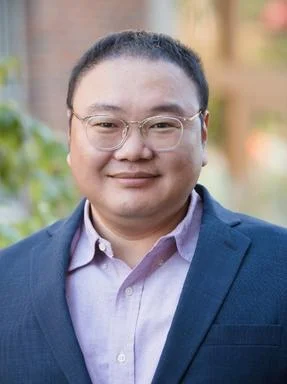In this program, you'll combine coursework in engineering and life sciences to conduct independent research in the human health and well-being fields. You'll learn to merge engineering principles with science to understand health-related problems and design innovative solutions, including methods, devices and software.
As a biomedical engineer, you'll focus on technological and medical advancements to develop new devices and equipment that improve human health. You might design software for medical equipment, create computer simulations to test new drug therapies, build artificial body parts like hip and knee joints, develop materials for replacements or design rehabilitative exercise equipment.
Start Dates: Fall, Winter, Spring or Summer
Curriculum: 90 Credit hours completed in quarter terms
Program Length: 48-60 months for students entering with a Master of Science degree.
72-84 months for students entering with a bachelor's degree.
PhD in Biomedical Engineering
Your Biomedical Engineering curriculum includes:

Cross-disciplinary coursework
Given the diversity and the multidisciplinary nature of biomedical engineering, the curriculum is designed to offer a common set of core courses to provide the fundamentals of biomedical technology, research and design, advanced statistical and numerical methods, as well as a course for professional development.
Wide range of elective courses for specialization
The core coursework is augmented by a wide range of elective courses allowing students to obtain depth and breadth in their area of specialization.
Independent research opportunities
Twenty credit hours dedicated to designing and creating novel methods, devices, and software to bring innovative solutions to health-related problems.
Learn from experts in the biomedical field
Learn from faculty who hold degrees in or conduct primary research in areas associated with biomedical engineering, topics including orthopedic biomechanics, computational biomechanics, cardiovascular biomechanics, biosensing, biofluorescence, medical device development, applications of AI in biomedical sciences and engineering, assistive technologies, applications of nanotechnology in bioengineering, and neuro-engineering.
Request for Information
20 Credit hours dedicated to your independent PhD research
Application Information
Required Courses - 13 Credit Hours
- ENBI 4600 - Biomedical Engineering: Technology, Research and Design
- ENBI 4610 - Experimental Design in Biomedical Sciences
- ENGR 4300 - Advanced Numerical Methods
- ENME 4900 - Grad Professional Development
Elective Core - 8 Credit Hours
Technical Electives - 4 Credit Hours
- BIOL 3241 - Anatomy and Physiology of the Skeletal, Nervous and Muscular Systems
- BIOL 3242 - Human Anatomy and Physiology - Systems of Homeostasis
- BIOL 3640 - Introductory Neurobiology
- BIOL 3647 - Neuroscience of Movement
- CHEM 3811 - Biochemistry-Proteins
- ENBI 4500 - Biofluids
- ENBI 4510 - Biomechanics
- ENBI 4520 - Introduction to Cardiovascular Engineering
- ENBI 4530 - Biomechanics of Human Movement
- ENBI 4630 - Biomaterials
- ENBI 4800 - Advanced Topics (Bioengineering)
- ENGR 3630 - Finite Element Methods
- ENGR 3450 - Biosensing Technology
- ENGR 3455/4455 - Fluorescence and Its Applications in Biomedical Sensors
- ENGR 4350 - Reliability
- ENGR 4620 - Optimization
Technical Electives for Those With a Non-Engineering Degree
Candidates without an engineering degree must take courses in engineering with the following prefixes ENCE, ENEE, ENME and numbered 3000 or higher, and they must be approved by an advisor.
- ENBI 4500 - Biofluids
- ENBI 4510 - Biomechanics
- ENBI 4520 - Introduction to Cardiovascular Engineering
- ENBI 4530 - Biomechanics of Human Movement
- ENBI 4620 - Bioelectronics
- ENBI 4630 - Biomaterials
- ENBI 4800 - Advanced Topics (Bioengineering)
- ENGR 345 - Biosensing Technology
- ENGR 3455/4455 - Fluorescence and Its Applications in Biomedical Sensors
- ENGR 3620 - Advanced Engineering Mathematics - Corporate
- ENGR 3630 - Finite Element Methods
- ENGR 4100 - Instrumentation and Data Acquisition
- ENGR 4350 - Reliability
- ENGR 4620 - Optimization
Research Coursework - 20 Credit Hours
- ENGR 5995 - Independent Research
For students entering with a bachelor’s degree, 90 credits are required, at least 75 of which must be completed at the University of Denver.
1st In the number of doctoral degrees awarded to underrepresented minorities
3rd In the number of doctoral degrees awarded to women
5th In the number of doctoral degrees awarded overall in 2019

Get Started on Your PhD in Biomedical Engineering
Advance your career in the biomedical field with a PhD at the University of Denver’s Ritchie College of Engineering and Computer Science.





